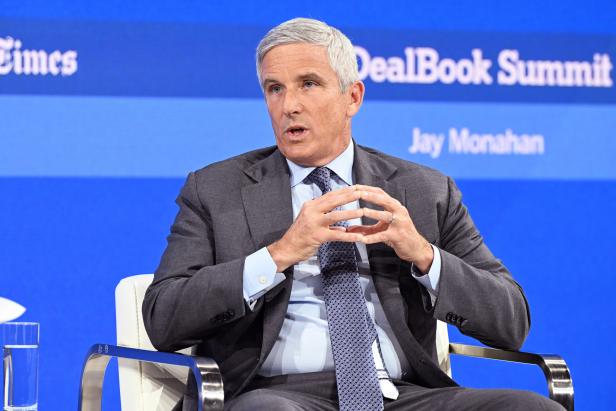As Jay Monahan, the commissioner of the PGA Tour, moves closer to securing long-term financial backing for the tour, a lawsuit filed in Canada has raised concerns about potential ties to Saudi Arabian Crown Prince Mohammed bin Salman. The lawsuit alleges that Yasir Al-Rumayyan, governor of Saudi Arabia’s Public Investment Fund, has been carrying out instructions from the Crown Prince with “malicious intent.” Dr. Saad Aljabri, a former Saudi intelligence officer, has accused the Saudi government of unlawfully detaining his children, leading to questions about the ethics of doing business with individuals associated with such allegations.
Despite the controversy, the PGA Tour is faced with the dilemma of not being able to walk away from a partnership with Saudi Arabia due to a significant financial investment from the Public Investment Fund. With billions potentially at stake, the tour is at risk of facing consequences if it chooses to abandon the partnership. Additionally, the deal with Saudi Arabia has already raised ethical concerns among the tour’s constituents and sponsors, causing division and criticism within the golf community.
The emergence of LIV Golf, a rival league with substantial financial backing, further complicates the situation for the PGA Tour. LIV Golf has shown a willingness to take down the tour in order to establish itself as a powerful force in professional golf. The signing of top players like Jon Rahm by LIV Golf has intensified the competition between the two leagues, putting pressure on the PGA Tour to make strategic decisions in order to remain competitive.
The normalization of doing business with entities like Saudi Arabia has raised questions about the integrity and ethics of professional golf. The PGA Tour’s decision to align itself with a regime facing serious allegations has eroded its moral standing and credibility among fans and stakeholders. Despite attempts to justify the partnership based on financial considerations, the ethical implications of such agreements cannot be ignored in the long run.
The leadership of the PGA Tour, particularly Jay Monahan, has been criticized for their handling of the situation and their failure to address the ethical concerns raised by partnering with Saudi Arabia. The decision to prioritize financial gain over ethical considerations has damaged the reputation of the tour and alienated some of its most loyal supporters. Moving forward, the tour will need to confront the consequences of its actions and work towards restoring trust and integrity within the golf community.
Ultimately, professional golf finds itself at a crossroads where critical decisions will need to be made in order to navigate the complex landscape of sports governance and ethical responsibility. The choices that Jay Monahan and the PGA Tour leadership make in the coming weeks and months will have far-reaching implications for the future of the sport. Whether they choose to align with questionable entities for financial gain or prioritize ethical integrity and accountability will shape the trajectory of professional golf for years to come. As the golf world watches closely, the stakes are high and the future is uncertain.
